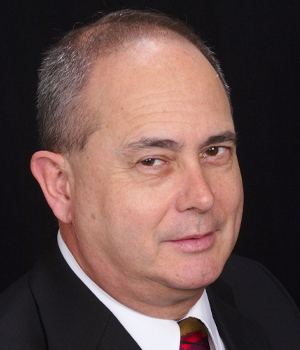

Richard D. Cobb, Retired, Eastman Kodak Company, ACS Rochester Section
Honors: ACS Volunteer Service Award 2017; ACS Fellow, 2017; Northeast Region ACS Volunteer Award, 2006; Special Recognition Award, ACS Division of Chemical Technicians, 2005, 2002; ACS Rochester Section Award, 2005, 2001; ACS Rochester Section, “Salutes to Excellence” Award, 2004.
Professional Positions (for past 10 years): Retired, Eastman Kodak Company, Senior Research Associate, 1969-2011; Division Health, Safety and Environmental Director, 2000-11.
Service in ACS National Offices: Committee on Committees, 2017-present; Committee on Nominations and Elections, 2011-16, Chair, 2015-16; Council Policy Committee (Non-voting), 2015-16, 2008-10; Committee on Membership Affairs, 2008-11, Chair, 2008-10, Committee Associate, 2007; Board of Trustees, Group Insurance Plans, 2008-10, ex officio, 2008-09; Committee on Admissions, 2002-07, Consultant, 2008, Chair, 2003-05, Committee Associate, 2000-01; Committee on Technician Affairs, 1998-03, Chair, 2000-02, Committee Associate, 1997; ACS Governance Review Taskforce, 2005; Board Oversight Group on Leadership Development, 2005, CPC Working Group on Future Council Representation, 2019-2020.
Service in ACS Offices: Rochester Section: Councilor, 2008-present, 1999-03; Chair, 2007, Chair-Elect, 2006; Secretary, 2005; Alternate Councilor, 2004, 1998-99; Treasurer, 1995-97. Division of Business Development & Management: Immediate Pat Chair, 2016, Chair, 2015, Chair-Elect 2014. Division of Chemical Technicians: Councilor, 2007-09, Chair, 1997; Chair-Elect, 1996; Membership Committee, Chair, 1998. Northeast Regional Board of Directors: Chair, 2013-2016; Vice Chair, 2007-2012. Northeast Regional Meeting: On-Site Coordinator 2022; Organizing Committee 2012; General Chair, 2004.
Member current: Member ACS since 1994.
ACS Division: Business Development & Management.
Related activities: Facilitator for ACS Leadership course on “Collaborating Across Boundaries”
How would you imagine the COVID-19 pandemic would be impacting the work of technicians? Could they – generally – continue to do their work? With what sort of accommodations?
Years ago, the job of a technicians was more “hands-on” in nature, and those with higher degrees were the supervisors and managers. Times have changed so that now many technicians do have office-type jobs, using automation and computer simulation to acquire many of the answers to their scientific needs.
So, in light of this, there is little difference on how COVID-19 is impacting technicians versus any other employed person. If able, to meet the needs of their job, they are being allowed to work from home. If not, many are furloughed. If their work is noted as “essential”, they are being allowed to work as usual. This situation has indeed “leveled the playing field” for all.
How has COVID-19 impacted activity in your local section? Any thoughts on how ACS could more effectively engage its local section members during these times of social distancing?
Unfortunately, few areas are not impacted by this situation, and Rochester has experienced its number of cases and deaths from COVID-19. At this time, the Rochester Local Section was within 7 months of hosting a Northeast Regional Meeting (NERM) – scheduled for October 18 – 21. Although we are hopeful much of the situation has cleared up by October, we also realized that these months right now are when sponsorships and vendors had to be lined up and in place to give the meeting the funds needed to run the meeting.
We also realized that those sponsors and companies have much more on their mind at this time than our meeting, including furloughed employees, travel curtailments, etc. Thus, we have begun working with our hotel and convention center venues to move the meeting to October of 2022 (2021 was already slated for Boston).
We are still opting for “virtual” monthly meetings to keep our planning on track, but we have canceled some events into the summer due to the virus – such as our High School Award nights, quarterly mixers, Project SEED effort, etc. There are, in my opinion, two things that can help engage our Local Section members at this time:
- This is a great time to have members involved in reviewing and putting together proposals for Bylaw and Handbook changes (which should be done very three years). Projects like this often get put on the back burner, and this is a perfect time to get a handle on items such as that. It may also be a review and update to the Section’s Strategic Plan, etc. It is a way to keep members involved from their home and yet serve a great purpose for the Local Section.
- Another option is one that should not be a “one size fits all” effort. Some people do need social interaction at this time. Many locations are offering “virtual lunches” or “virtual happy hours”, where those involved can meet via “Zoom Meeting” or other format to have a bite to eat or a cocktail and just catch up on things. In most cases, business is not part of the agenda – just chatting and interacting. Now, to be fair, we also must realize that others may not enjoy such events and should not be forced to or embarrassed in “having to” participate.
From a higher-level perspective, what are some key lessons that membership organizations, like ACS, should take away from the COVID-19 pandemic?
It would be naive to think that a major disaster, such as the pandemic, could appear at any time. For most of our present lifetime, we have been exempt from such major events (like the depression, World War II, etc.).
It may not be a virus, but other major events could impact our membership Society. The timing was not good in consideration of a National Meeting right around the corner. Right now the ACS is realizing how big and bureaucratic it is, which is limiting the Society’s ability to make quick decisions and adjust paths forward readily. I do think there are specific lessons to be learned:
- Each Local Section, Regional Meeting, Division and other functional levels of the ACS should document how they have reacted in 2020 to fall back on if a situation arises again. The worst thing we can do is just to try to get by this and then move on as if nothing happened. There is an old saying – “You live and learn or you don’t live long”.
- National ACS needs to seriously take a look at its bureaucracy and the Board, Council and other governing levels need to work together to streamline the organization for improvements in both the turn around time and “hoops to go through” for decision-making in the future. This would be a good opportunity for all of us to look at the Society through the window to the future, rather than in the mirror of “How does it impact me and my position?”
- We need to keep identifying new ways to interact, and even more important, to collaborate with our ACS partners. We do not need to be competing against each other – we need to be collaborating with each other with our eyes towards the future.
How would you assess the job ACS is doing in engaging its retired and emeritus members? Any thoughts on how the Society could better support these groups?
I believe we can try to do more in this area. There has not been, in my opinion, a lot of innovative efforts around senior chemists – when I hear of programs, it is usually the same joint effort with younger chemists. There are perhaps a few areas where the ACS might be able to offer some help to those retired and emeritus members. For the most part, this would be a good example of the Society moving away from the long standing “one size glove fits all” mentality, and focusing on aiding Local Sections with templates, and guidance on how to set up local programs that meet the needs of their local senior members. Some ideas I have include:
- Offering an avenue through our career service programs for seniors who might enjoy part-time jobs in the field of chemistry, mentoring, consulting, etc. This could include a location where such opportunities could be posted by both industries and academia.
- There are some seniors who may not want to work, but enjoy volunteering. Because every community is different, I can see ACS offering up guidelines around speaking with community Chambers of Commerce, Visitor Bureaus, etc. to establish repositories of opportunities for community volunteerism.
- I also think local workshops might be of value where those who have retired and can now learn from those still in the workforce as to what is new and changing. I did not retire all that long ago, but I bet if I went back to my present job, I would not recognize how it has transformed, even after a short time, in this fast moving world.
In a June 13, 2016 C&EN story, on the subject of getting involved with the Society, you said, “A couple of the first experiences I had were doors being shut, and that was because I was a technician.” What led you to conclude that your role as a technician was the reason for being rebuffed?
First, let me say that I have never been one who believed that I should be given an opportunity just because of who I was. All I wanted was to be given a chance to prove myself. There are two specific examples I have to back up my comment:
- Early on, I was in D.C. for some ACS business, and I was talking to a key leader of the Society (from the Board). They had asked me about what it would take to get chemical technicians more involved in the ACS. I responded with “That’s easy – let them be full members” (at that time, chemical technicians did not qualify to be full members base on their degree level). Their response was a simple “Well that will never happen.”
- Years later, around the year 2002 or so, our Local Section was planning on hosting a Regional Meeting in 2004. However, we could not find anyone to step forth to take on the role of General Chair. At an ACS National Meeting, I took aside one of our Councilors from our Local Section and said I would do it. They said they would think about it – because, after all, “I was only a technician”.
In both of these cases, one might say that “Society doors” were shut on them. By the way, I did not give up. I eventually became Chair of the Membership Affairs Committee and led in the bylaw change that allowed for full membership for both technicians and students. Oh, and that 2004 Regional Meeting - I did become General Chair and we had a very successful meeting by all accounts.
As a follow-up, have things changed in terms of how the Society views technicians? What, if anything, needs to happen for the Society to present a more welcoming environment?
There are definitely areas of improvement around how technicians are respected. However, this is a double-edged sword. In many areas, graduates with BS degrees are being hired as technicians – and some consider that “insulting”. Thus, those people do not want to be acknowledged as a “technician”.
What the ACS needs to do, in order to present a more welcoming atmosphere, is keep striving to get rid of the “degree fixation” and make part of their “inclusive and diverse” efforts the concept of looking at all members of the Society as chemical professionals – it is not just based on gender, race, etc. differences.
One of the best things technicians did within the ACS was eliminate their own Division of Chemical Technicians. That separation from other professionals did not help the cause and only kept technicians together in the same room talking to each other. It made more sense to move out and expand – having technician ideas and opinions out in multiple areas within the Society.
In terms of a value proposition, how can ACS be more relevant and valuable to technicians?
This is another area where I oppose the “one size glove fits all” concepts. Based on this question, all technicians will realize the same values in life. Value is an individual thing, and the one proposal I will keep making is for the ACS to move to a “marketplace membership” where, much like shopping via the web:
- Start with a low price, entry level base membership
- All benefits available will be shown, explained and priced accordingly
- Members will “add to cart” those benefits of value to them and thus design their own membership value – regardless of their position in the society or ACS.
- Annually, individual members are able to add or subtract the benefits of value to them and their specific needs as life changes.
This effort will also offer ACS a “marketplace input” on those benefits of little to no use to chemical professionals or benefits that can be acquired in many other places or through many other associations – benefits that are probably not worth keeping.
Relevancy is another proposition. And the main thing that can make the ACS more important and of value to technicians is when it also becomes more relevant to the companies technicians work for. A major revamping of Corporation Associates is needed, in my opinion, to begin that process. The foundation for this revamping might include:
- A roundtable discussion with key industrial leaders around what a Society can do to be of benefit to a company and its employees
- Look to include in that discussion, and in any “new” Corporation Associates, a large number of newer small chemical and scientific businesses, which makes up as much (if not more) of the workforce today.
You have been involved in countless volunteer leadership roles with the ACS. Which of them have been most personally rewarding for you?
There have been many leadership roles within the ACS that have helped me in building up my self-confidence to continue my willingness to step up to the plate. These leadership roles included the Chairing of a Local Section, two divisions, a Regional Board and National Committees. The “most rewarding” might include:
- Chairing a Regional Meeting. Despite all the sleepless nights and heartburn, the final successful product made it worthwhile.
- Chairing the Admissions Committee. This was my first National Committee and it gave me the chance to not only lead, but to innovate as I led the movement to abolish that Committee and make it part of the Membership Affairs Committee.
- Chairing the Membership Affairs Committee, as it was in that role that I was able to lead the way to opening up full membership for both technicians and students.
- Chairing Nominations and Elections. This was my first ACS Elected Committee and it gave me the opportunity to innovate in how the election process takes place within the ACS.
- And I could not forget the opportunity to run for Director-at-Large in 2019. Imagine, starting in the ACS where I was not “qualified to be a member” to running for the Board of Directors! A great change has taken place over time and it made “sticking with it” worthwhile. I did not win this race, but the great opportunity to run, the chance to expound on my opinions and ideas on the national stage – well this is the “personal reward” I was talking about!
I would like to point out that my managers at work kept stating that they wanted their employees to take on leadership roles, but never offered any opportunity to do so. The ACS did offer the platform for which to work on these skills, and one thing I made sure I did was to report back to my managers after every local, regional or national meeting, on what I was doing. I have to say that once this was done, it opened up many more opportunities in my career. It is not just the opportunity that makes the difference – it is what you do with the opportunity.
How did your parents influence your leadership style?
I grew up in rural Pennsylvania – in a small town and in a family where my dad worked at a local tannery until it closed, and then at Corning Glass. My mom worked in a dry cleaning establishment and then became a cook in our high school cafeteria. We did not have a lot – but we had everything we needed! We grew up realizing that we alone were responsible for our decisions. We grew up respecting authority and each other. We were also taught to work hard, be reliable and be willing to stand up on our own two feet.
That experience has done a lot in forming my leadership skills – skills that hopefully include:
- A respect for opinions from all and respect what each individual brings to the table
- A willingness to take responsibility for decisions made
- A shyness to seek praise - I have a strong adversity to being praised for myself but would rather have the team get credit. I do not look at financial or complimentary compensation as a reward – I look at making a difference for the better as all the reward I need.
- An inclination to strive for results and when things go bad, a desire to fight on and not crumble
In a 360 review I completed a few years ago, I received a very high mark for “character”. I think that, above all, was molded by the hands of my parents. I cherish those lessons learned and would not give up that family history and learning for anything.
How have your volunteer roles with ACS helped you personally and professionally?
I had mentioned earlier how my opportunities at work expanded as my roles within the ACS expanded. In retirement, even in obtaining other opportunities, the leadership and communications skills learned through my ACS roles have been of great benefit.
Personally, it is all about confidence – and the feeling that I can take on any task and I can take on any leadership role thanks to the confidence gained through my ACS leadership roles. I strongly believe the benefits of involvement are there for everyone. The question is what we do with the offering.
Lots of people look to escape the cold and snow in their retirement years. You have rejected that approach, remaining in Rochester, N.Y. What explains your allegiance to the region?
Let me hit that nail right on the head – I love cold weather, snow, cold rain and cloudy days. Ironically, the joke for years was that George Eastman built Kodak here because Rochester was “nature’s darkroom”. And life is always changing here. The general principle is that in Rochester, one can enjoy all four seasons – in one day!
I also love the area around Rochester – the Great Lake (Ontario), the upstate region into Canada and the Finger Lakes region. I love the beautiful lakes, hills and the blessing that this area does not face the disasters so many other areas do, such as floods, hurricanes, tornados, earthquakes, forest fires, etc.
To summarize, Rochester is just the right size – with a great cultural and historic foundation and is a great center for health care (important as one gets older). To use a slogan from the Visitors Bureau years ago – “I’d rather be in Rochester”.
This article has been edited for length and clarity. The opinions expressed in this article are the author's own and do not necessarily reflect the view of their employer or the American Chemical Society.
Copyright 2020 American Chemical Society (All Rights Reserved)






